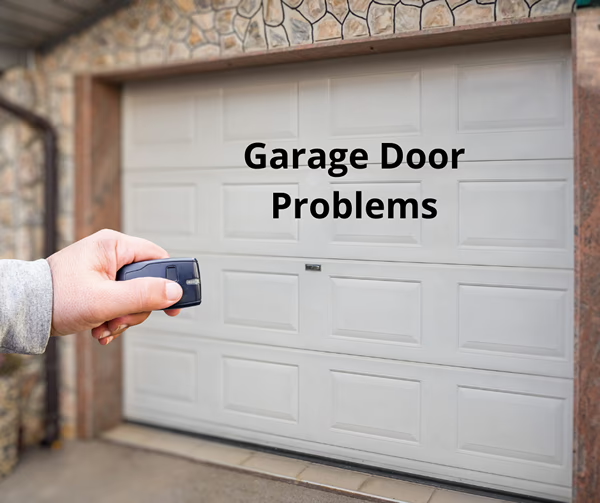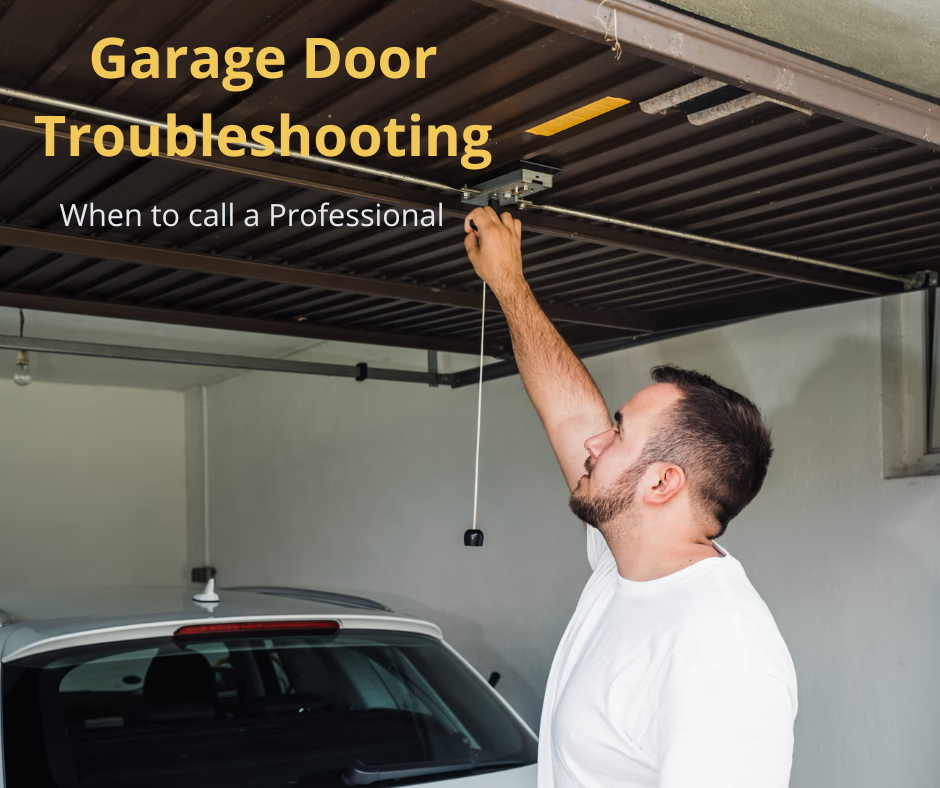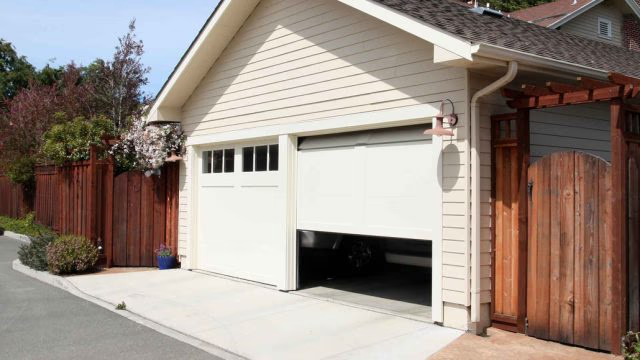Common problems and knowing when to call a professional
A malfunctioning garage door are not only annoying, but they can even cause potential safety risks to your and your family. Some garage door issues may be complex but many are relatively easy to identify.
In this garage door troubleshooting guide, we’ll cover the most frequent problems, so you can understand what might be going wrong and when you need to call a professional.
1. Power Supply Issues
One of the first steps in troubleshooting garage door problems is to check if the opener is receiving power. This is a common problem and easily checked. So check your power supply first.
Signs: The garage door doesn’t respond when using the remote or wall switch, and there are no lights or sounds coming from the opener.
 2. Remote Control or Wall Switch Not Working
2. Remote Control or Wall Switch Not Working
If you notice that the garage door responds to one control but not the other, it could point to a problem with either the remote or the wall switch.
Signs: The garage door works when operated by the wall switch but not the remote, or vice versa. You may also notice intermittent responsiveness from one or both controls.
3. Safety Sensor Problems
Garage doors are equipped with safety sensors to prevent accidents, but these sensors can sometimes cause the door to malfunction if they aren’t working properly.
Signs: The garage door begins to close but immediately reverses, or it stops halfway during its descent. The sensors near the bottom of the door may show blinking indicator lights.
4. Broken Springs
One of the most common issues with garage doors is broken torsion or extension springs. Springs are responsible for lifting and lowering the door, and when they break, the door becomes difficult to operate.
Signs: You may hear a loud bang from the garage, and the door feels unusually heavy when trying to lift it. In some cases, the door won’t open at all.
5. Worn or Snapped Cables
Garage doors rely on cables to lift and lower smoothly. When these cables wear out or snap, the door may malfunction or stop working entirely.
Signs: The garage door moves unevenly, gets stuck halfway, or becomes difficult to operate. You might also notice a dangling or frayed cable near the springs.
6. Misaligned or Damaged Tracks
The garage door operates on tracks that guide its movement. If these tracks become misaligned or damaged, the door can get stuck or make unusual noises.
Signs: The garage door makes grinding or scraping noises as it moves. It may appear crooked or stop moving before fully opening or closing.
7. Limit Settings Misadjustment
The limit settings on the garage door opener determine how far the door travels during opening and closing. If these settings are off, the door may not operate as expected.
Signs: The garage door doesn’t close completely or reverses immediately after touching the ground. The door may also fail to open all the way.
8. Stripped Gear in the Opener
Over time, the gear inside the garage door opener can wear out, especially if the door is heavy or the opener is used frequently. When this happens, the door might not move despite the opener’s motor running.
Signs: The opener motor runs, but the door doesn’t move. You may hear a whirring sound from the motor, but there is no corresponding movement from the door.
9. Noisy or Sticking Rollers
The rollers on your garage door help it glide smoothly along the tracks. When these rollers wear out or become dirty, the door may operate noisily or become difficult to move.
Signs: The garage door makes squeaking or grinding noises when it opens or closes. The door may also seem to stick or jerk during operation.
10. Door Not Responding to Remote but Works with Wall Switch
If your garage door works with the wall switch but doesn’t respond to the remote, the issue could be related to the remote control or the opener’s signal receiver.
Signs: The garage door opens and closes as expected with the wall switch, but the remote control fails to operate the door. You might notice inconsistent responsiveness or no response at all from the remote.
When to Call a Professional
While many garage door issues are easy to identify, some problems require the attention of a professional. If you encounter:
- broken springs,
- snapped cables, or
- damaged tracks,
it’s essential to call a trained technician to avoid injury or further damage to the door. Additionally, electrical issues with the opener, including malfunctioning limit settings or stripped gears, are best handled by an expert.
Knowing when to call a professional can save you time, money, and frustration. For issues that involve complex repairs or safety concerns, don’t hesitate to reach out to a garage door specialist. Regular maintenance and timely repairs will keep your garage door operating smoothly for years to come.
Call us or Text us at 403-690-8966 and we’ll be happy to assist you!





